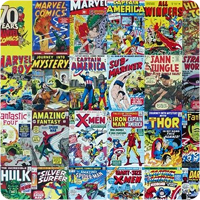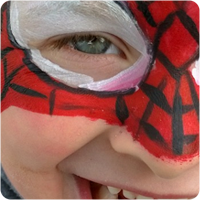Het arrangement Superheroes h45 is gemaakt met Wikiwijs van Kennisnet. Wikiwijs is hét onderwijsplatform waar je leermiddelen zoekt, maakt en deelt.
- Auteur
- Laatst gewijzigd
- 2025-05-11 22:17:24
- Licentie
-
Dit lesmateriaal is gepubliceerd onder de Creative Commons Naamsvermelding-GelijkDelen 4.0 Internationale licentie. Dit houdt in dat je onder de voorwaarde van naamsvermelding en publicatie onder dezelfde licentie vrij bent om:
- het werk te delen - te kopiëren, te verspreiden en door te geven via elk medium of bestandsformaat
- het werk te bewerken - te remixen, te veranderen en afgeleide werken te maken
- voor alle doeleinden, inclusief commerciële doeleinden.
Meer informatie over de CC Naamsvermelding-GelijkDelen 4.0 Internationale licentie.
Aanvullende informatie over dit lesmateriaal
Van dit lesmateriaal is de volgende aanvullende informatie beschikbaar:
- Toelichting
- Deze les valt onder de arrangeerbare leerlijn van de Stercollectie voor Engels voor havo, leerjaar 4 en 5. Dit is thema 'Heroes'. Het onderwerp van deze les is: Superheroes. Deze les gaat over superhelden en hun achtergrondverhalen.
- Leerniveau
- HAVO 4; HAVO 5;
- Leerinhoud en doelen
- Engels;
- Eindgebruiker
- leerling/student
- Moeilijkheidsgraad
- gemiddeld
- Studiebelasting
- 4 uur 0 minuten
- Trefwoorden
- achtergrondverhalen, arrangeerbaar, engels, h45, stercollectie, superhelden, superheroes

 The subject of this lesson is 'Superheroes'.
The subject of this lesson is 'Superheroes'.


 Song: Superheroes
Song: Superheroes By Robin Rosenberg
By Robin Rosenberg
 By Robin Rosenberg
By Robin Rosenberg Here are some words from the text 'The Psychology Behind Superhero Origin Stories'.
Here are some words from the text 'The Psychology Behind Superhero Origin Stories'. Writing Task
Writing Task
 Fill in the schedule and answer the questions below.
Fill in the schedule and answer the questions below.